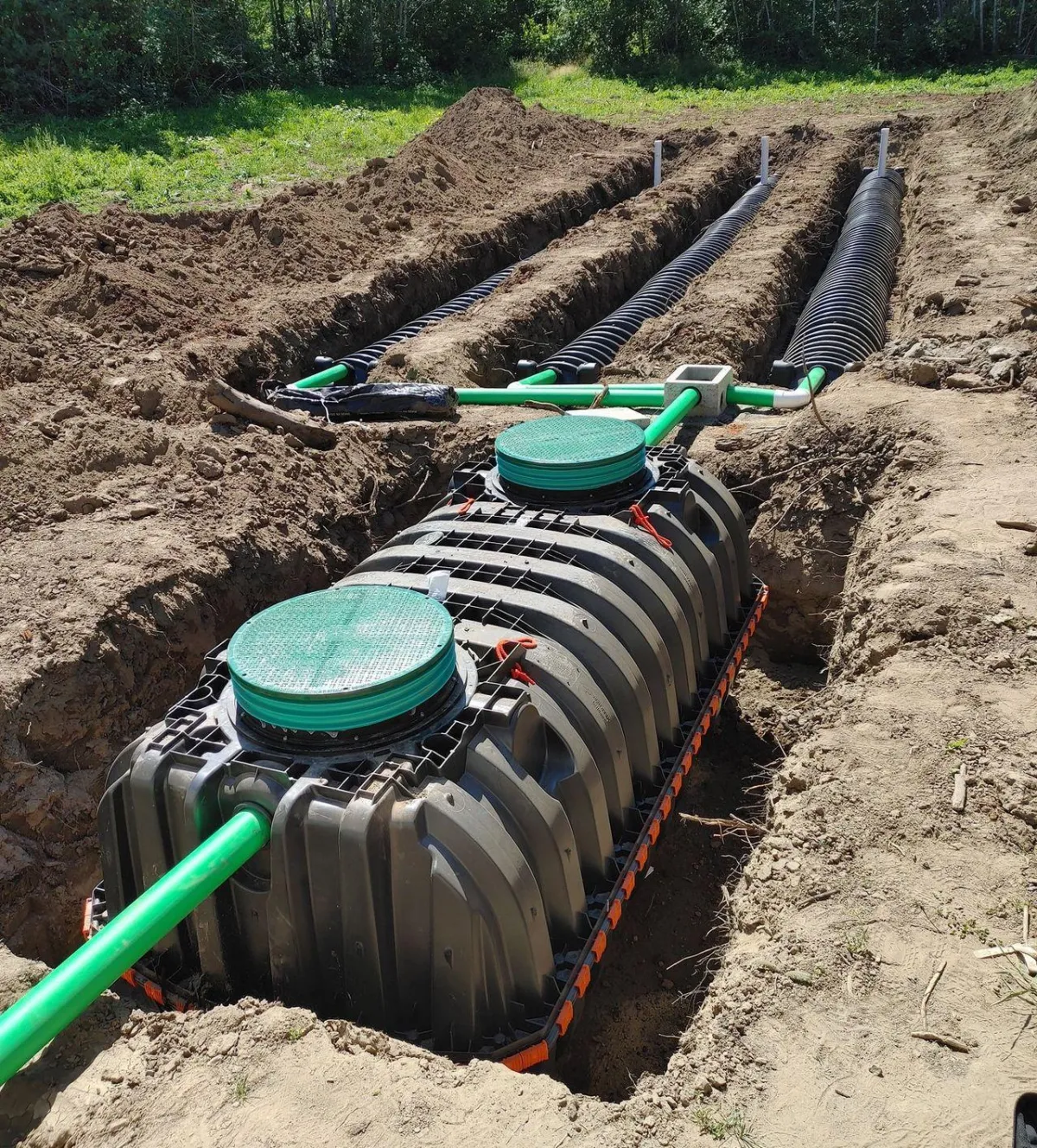Licensed, Bonded & Insured | Family Owned & Operated
049-012803 IL | IL Pumping License: 054-021753 | IA Pumping License: 12839
22 YRS. EXPERIENCE, FULL SITE PREP EXPERTS - HOW CAN WE HELP?

Choosing the Right Septic System Design for Your Illinois Property
Selecting the appropriate septic system design is a pivotal decision for homeowners in Illinois. With diverse soil types, property sizes, and environmental conditions across the state, understanding the various septic system options is essential. This article explores the considerations involved in choosing the right septic system design for your Illinois property, including conventional systems, alternative technologies, and the factors that influence the decision-making process.

Understanding Conventional Septic Systems
Conventional septic systems, also known as gravity systems, are a common choice for many Illinois homeowners. These systems rely on natural gravity to move wastewater from the household plumbing to the septic tank and then to the drainfield for treatment. Conventional systems are well-suited for properties with favorable soil conditions and adequate space for installation.
Illinois residents considering a conventional system must conduct a thorough soil analysis to ensure proper drainage and percolation rates. Soil texture, composition, and saturation levels play a significant role in determining the system's effectiveness. Consulting with a licensed septic system designer or engineer is crucial to ensure that the chosen system aligns with the property's unique characteristics.
Exploring Alternative Septic Technologies
For properties with challenging soil conditions, limited space, or specific environmental concerns, alternative septic technologies offer innovative solutions. One such technology is the Aerobic Treatment Unit (ATU), which introduces oxygen into the wastewater treatment process, enhancing bacterial activity and facilitating more efficient treatment. ATUs are ideal for properties with poor soil drainage or smaller lot sizes.
In areas prone to high water tables or near bodies of water, mound systems present another alternative. Mound systems raise the drainfield above ground level, allowing for improved treatment and reducing the risk of contamination. While mound systems may require additional maintenance and cost, they can be a suitable choice to ensure wastewater treatment in challenging environments.
Factors Influencing Design Selection
Several factors influence the choice between conventional and alternative septic system designs in Illinois:
Soil Type and Drainage: The soil's ability to absorb and treat wastewater is a critical consideration. Properties with clay or compacted soils may require alternative systems to ensure proper treatment and prevent system failure.
Lot Size and Space Availability: The size of the property and available space impact the feasibility of different septic system designs. Alternative technologies like ATUs or mound systems can be advantageous for smaller lots.
Proximity to Water Sources: Properties near lakes, rivers, or groundwater sources must prioritize systems that minimize the risk of contamination, making alternative technologies a viable option.
Environmental Regulations: Local and state regulations may influence the choice of septic system design. Some areas have specific requirements for properties with certain characteristics, such as proximity to wetlands or bodies of water.
Long-Term Maintenance and Costs: Consider the ongoing maintenance requirements and associated costs of different system designs. Alternative technologies might require more frequent maintenance but can offer better performance in challenging conditions.
Consulting Experts and Professionals
Selecting the right septic system design is not a decision to be taken lightly. Consulting with experts and professionals is crucial to make an informed choice. Licensed septic system designers, engineers, and soil experts can provide valuable insights into the specific needs of your property and recommend suitable options.
Additionally, reaching out to local health departments and regulatory agencies can help you understand the requirements and approvals needed for your chosen septic system design. Building a collaborative relationship with these entities ensures that your selected design aligns with current regulations and guidelines.
Conclusion: Choosing the right septic system design for your Illinois property involves a thorough understanding of soil conditions, property characteristics, and environmental considerations. While conventional systems are suitable for many properties, alternative technologies like ATUs and mound systems offer solutions for challenging conditions. By carefully assessing these factors and seeking expert guidance, homeowners can make an informed decision that ensures effective wastewater treatment while safeguarding the environment and public health.

AVOID COSTLY MISTAKES:
Do NOT hire an excavating contractor without first reading our free guide:
The ULTIMATE Excavation & Septic "Success Guide."

We Offer Excavation Services NearYou!
If you don't see your specific area, contact us and we may still be able to help or give a referral.
All rights reserved | Privacy policy



